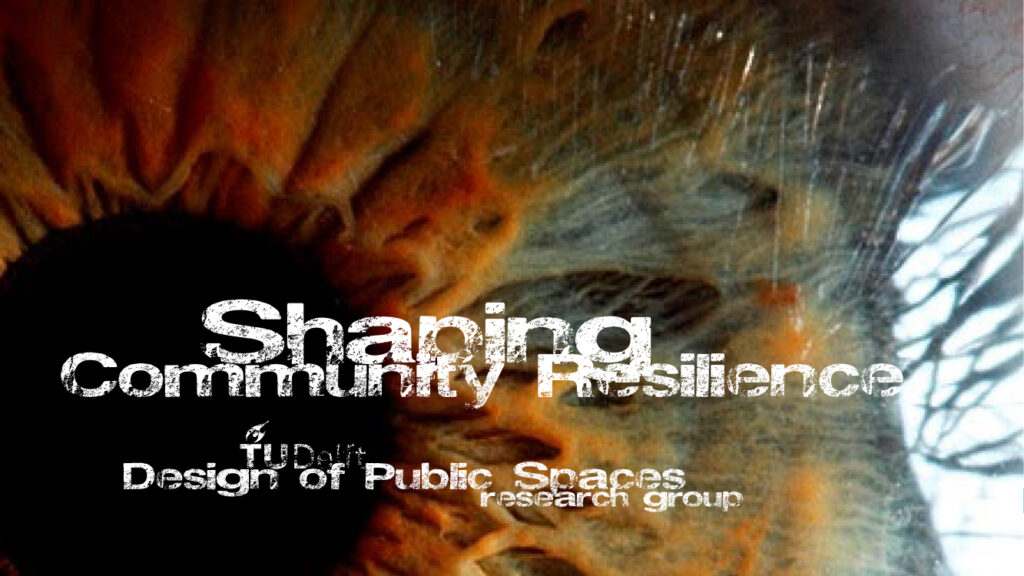Resilient Communities | Comunità Resilienti
With the event, the Italian Pavilion aims to raise awareness on urban resilience, from the environmental, economic, and social point of view, in relation to the 17 Sustainable Development Goals of the 2030 Agenda, on the occasion of Urban October promoted by UN-Habitat. The event has also been scheduled on the occasion of the UN75 celebrations before the Venice Biennale was postponed last year due to the COVID-19 pandemic.
An expert from the Joint Research Center of the European Commission will introduce the Agenda 2030, and invited Italian speakers will present case studies, which already are included in the research project Mapping Resilient Communities – co-created by professionals and urban activists who have experimented and implemented multidisciplinary practices of resilience in Italy and abroad. The event includes a thematic session coordinated by TU Delft, Netherlands, with professors and students affiliated to the Design of Public Spaces Research Group. Finally, a round table discussion is planned with the involvement of the audience attending the live streaming.

when:
Friday 6 October
14:00-17:00h
where:
17th International Architecture Exhibition
Italian Pavilion
Venice
online:
Italian Pavilion event
Italian Pavilion Facebook page
programme:
Introduction:
Alice Siragusa, Joint Research Center, European Commission
Italian speakers:
Katia Accossato, Politecnico di Milano, Italy
Andrea Maspero and Paola Serrittu, Landworks, Italy
Sven Kohlschmidt and Lorenza Manfredi, Simeri Laboratorio Urbano, Italy
Lorenzo Giorgi, Glocal Impact Network, Italy
Ami Valdemoro, Liter of Light Global
International academic perspective:
The Design of Public Spaces Research Group, TU Delft, Netherlands
Maurice Harteveld, Mar Muñoz Aparici, Sahar Asadollahi Asl Zarkhah, Birgit Hausleitner, Kevin Hollander, Ioanna Karadimitriou, Matt van Kessel, and Olivier Wiegerinck.
Round table discussion:
moderated by Asma Mehan, Leiden University, Netherlands
Redefine the Role of the Architect
Comunità Resilienti is founded on the firm belief that architecture must make a significant contribution to improving the quality of life we lead, providing adequate responses to the environmental and social changes of our time. The construction industry is responsible for the majority of CO2 emissions globally. The role of architecture in a broader sense, and even more so that of the architect, is therefore central in the fight against climate change. To counteract the unsustainability of cities and resources, it is essential to rethink the role of the architect by taking responsibility for a change that is, now more than ever, necessary.
Climate Crisis and Resilience
The Italian Pavilion 2021 is based on the belief that the climate crisis is the greatest challenge that humanity must face. The world of architecture has a responsibility to make its own contribution. The fact that the resources at our disposal are not infinite is well established. It promotes a radical rethinking of the urban fabric, to transform communities into open, virtuous, and resilient systems. Their ability to react to climate and social change is essential.
Theme: Experimentation, Research, and Transdisciplinarity
Maintaining the status quo is not an option. Experimentation, research, and the challenge to the paradigms of contemporary society are crucial in architectural practice. It is essential that the architect becomes the synthetic figure capable of transforming transdisciplinary knowledge into visions.
source:
Comunita Resilienti
credits:
Production – La Biennale di Venezia
Curator Italian Pavilion – Alessandro Melis
Assistant Curator – Benedetta Medas
Universities, resilience agencies – Maurizio Carta and Paolo Di Nardo
Mapping Resilient Communities – Luisa Bravo, et al
with support of the Italian Ministry of Culture, and Directorate-General for Contemporary Creativity (Ministero della Cultura, Direzione Generale Creatività Contemporanea, Italia)
partners event:
City Space Architecture
Mapping Resilient Communities
Urban October, promoted by UN-Habitat
UN75 celebrations
Joint Research Center of the European Commission
Creativity, redundancy, and associative thinking play a central role in conceiving and reinventing the architecture of the future.
Comunita Resilienti
Resilient communities are organisms made up of webs of relationships, resources, opportunities, and perspectives. They are capable of implementing strategies capable of coping with the effects of climate change.
see also:
Empowering Resilient Communities




Pingback: Empowering Resilient Communities | Human Space